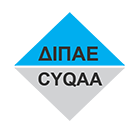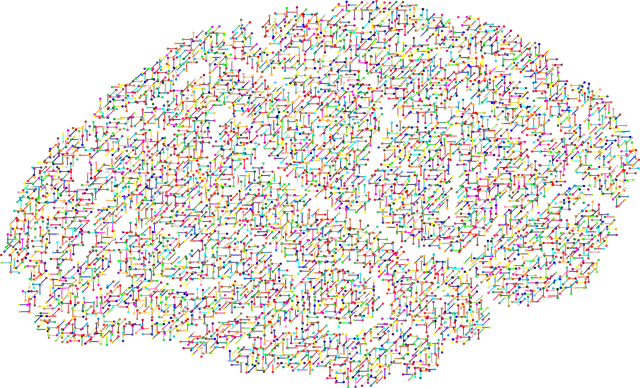
Magister Scientiae (Msc)
120 ects
English
Internationally Recognised
Online application submission

Joint degree by: Open University of Cyprus, Faculty of Pure and Applied Sciences and University of Cyprus, Department of Psychology and Department of Computer Science.
Since the inception of the computing paradigm, the prevalent metaphor for a computer has been that of a multi-purpose tool, as exemplified by the use of “command lines” and “desktops” at the interface between humans and computers. The unparalleled prevalence of computing-enabled devices in our everyday lives, and the widespread access to information over the Web, suggests a more apt metaphor for a modern computer, that of an assistant. Humans no longer use, but rather collaborate with their devices to solve a cognitive task, with each party learning and adapting to the capabilities of the other. Communication and decision-making happens at a level that is transparent to, and cognitively-compatible with, human abilities and limitations. One no longer speaks of human-computer interaction, but of human-computer symbiosis.
To teach the new paradigm of cognitive computing, the M.Sc. Program in Cognitive Systems brings together two main scientific areas: Cognitive Psychology, and Artificial Intelligence in Computer Science. Aiming, on the one hand, for the prospective students to understand the basis for human cognition, the Program is strongly influenced by Cognitive Psychology and includes learning modules that explore the fundamentals of perception, learning, mental representation, and reasoning in humans. Aiming, on the other hand, for the prospective students to be able to design cognitive systems, the Program places its emphasis on the investigation of computational methods and tools for understanding and designing cognitive systems, and includes learning modules from Connectionist and Symbolic Artificial Intelligence, from Machine Learning, and learning modules on recent developments in Cognitive Computing.
Courses are offered from both Cognitive Psychology (CP) and Computer Science (CS), organized in five main themes: Foundations, Perception, Learning, Reasoning, Systems.
EUROPEAN CREDIT TRANSFER SYSTEM – ECTS: 120
TEACHING LANGUAGE: English
LEVEL: Masters
DEGREE AWARDED: Magister Scientiae (Msc)
With a Master’s in Cognitive Systems, graduates have employment opportunities in the two traditional areas of Cognitive Psychology and Computer Science, but also in the new emerging area of Cognitive Systems. Generally speaking, graduates of the program will be qualified to contribute to basic and applied research aiming at the optimization of human-computer interaction and/or the application of computational tools in the understanding of cognition (research, research and development, and research and innovation at public and private centers/companies). In particular, students will be able to work in organizations in the areas of intelligent systems, machine learning, human-computer interaction, and cognitive system development, with large companies such as IBM, Google, Amazon, Microsoft, Facebook, and Apple actively seeking, and offering lucrative salaries for, employees in the emerging areas that are covered by the program of study. Their ability to design and develop systems also offers the opportunity to graduates to work as developers in large software companies, with the ability to incorporate in the traditional software development cycle novel and cutting-edge techniques that are inspired by human cognition. The graduates’ knowledge of cognitive psychology theories and methodologies will further allow them the choice of working in treatment and health facilities, helping people with cognitive disabilities, while exploiting their expertise in the development of cognitive systems to develop novel solutions for patients. Irrespectively of the focus of their studies, graduates will be well-versed in an exciting new area of research that can lead them to pursue a Ph.D. program at Open University of Cyprus, University of Cyprus, or at other competitive Ph.D. programs across the world.
The Open University of Cyprus (OUC), through its participation in the European project "Liaison Offices with the Labour Market", offers to students of all its programmes of study, the optional and free of charge Thematic Unit (i.e. Module) entitled "Industry Placement". This module provides students opportunities for a placement to gain professional experience in their particular field of study, and the hosting institution can be any public or private organisation operating in the Republic of Cyprus.
Each student has the right to participate in this offering once or twice during his / her studies, provided that s/he meets the required conditions.
Request more information by contacting the OUC Liaison Office here.
The program is geared towards students with a first degree in the STEM fields (Science, Technology, Engineering, and Mathematics), or a first degree in Cognitive Science or Psychology. The program assumes basic knowledge in the field of mathematics (discrete mathematics, formal logic, probability / statistics, calculus), and computing (algorithms, basic programming). This should be demonstrated in the application of a prospective student by listing relevant courses taken in earlier degrees or by offering proof of completion of relevant online courses (e.g., MOOCs).
Highly-motivated candidates from other disciplines are also encouraged to apply, but should expect to put extra effort to complement their prior studies by following additional induction elements linked to individual courses so that they can acquire the required background for these courses.
All candidates need to demonstrate that they meet the University’s English language requirements by submitting the relevant certificates along with their application (minimum grade IELTS 5.5 or any other equivalent). Details of the specific English language requirements can be found here.
The tuition fees for each Module (Thematic Unit) amount to 450€, for each course module of 10 ECTS units, while for the Master Thesis amount to €1350.The tuition fees for the completion of the Master programme amount to 5400€. As far as discounts and scholarships are concerned, the OUC related policy is in effect.
The Program consists of 120 ECTS units taught over four semesters of full time study. Each course in the Program is 10 ECTS units, while an optional thesis (taken in the place of three courses) is 30 ECTS units. It is expected that courses will be offered as follows, with the possibility of repeating some course offerings in both semesters: Fall Semester: Foundations, Reasoning; Spring Semester: Perception, Learning, Systems.
Students are required to take the two introductory courses under the Foundations theme (COS511, COS512), during the first semester. The remaining program comprises electives among all the other courses, as long as at least one third of the courses come from Cognitive Psychology (CP), and one third of the courses come from Computer Science (CS). It is advisable that at least one course is taken from each theme, to guarantee breadth of coverage. All elective courses, are offered subject to sufficient demand.
Students wishing to register for certain courses and obtain a certificate of completion, without an interest in gaining the full degree, can opt to do so, with pro rata tuition fees on the number of courses for which they choose to register.
Method of Instruction
Courses are taught in English using a blended distance learning methodology. Students have live online weekly meetings with their course instructors, which are recorded and available for offline viewing as well. Course forums are used to interact with the instructors asynchronously, and all relevant educational activities, course assignments and submissions, etc., are done online via the course’s educational platform. Coursework includes biweekly assignments and class projects. Εxams are administered through the e-Class Distance Learning Platform of the University, with the use of special online proctoring software.
| Programme of Study Layout | |||||||
| Modules | Semester | Required / Elective | Pre-requisite Modules | Co-requisite Modules | Workload | ||
| Hours | ECTS | ||||||
| Common for all Specializations | |||||||
| COS511 | Introduction to Cognitive Psychology | Fall | Required | 250-300 | 10 | ||
| COS512 | Introduction to Artificial Intelligence | Both | Required | 250-300 | 10 | ||
| COS513 | Computational Intelligent Systems | Fall | Elective | 250-300 | 10 | ||
| COS514 | Computational Neuroscience | Fall | Elective | 250-300 | 10 | ||
| COS521 | Cognitive Knowledge Acquisition | Spring | Elective | 250-300 | 10 | ||
| COS522 | Learning and Memory in Humans | Spring | Elective | 250-300 | 10 | ||
| COS523 | Human Perception and Attention | Spring | Elective | 250-300 | 10 | ||
| COS524 | Natural Language Processing | Spring | Elective | 250-300 | 10 | ||
| COS613 | Cognitive Agents and Reasoning | Fall | Elective | 250-300 | 10 | ||
| COS614 | Adaptive and Interactive Systems | Spring | Elective | 250-300 | 10 | ||
| COS621 | Experimental Psychology | Spring | Elective | 250-300 | 10 | ||
| COS622 | Cognitive Neuroscience | Fall | Elective | 250-300 | 10 | ||
| COS623 | Cognitive System Design | Spring | Elective | 250-300 | 10 | ||
| COS624 | Topics in Data Science | Fall | Elective | 250-300 | 10 | ||
| COS699 | Master Thesis Induction | Both | Elective | 0 | |||
| COS701A | Master Thesis I | Both | Elective | 250-300 | 10 | ||
| COS701B | Master Thesis II | Both | Elective | 500-600 | 20 | ||
| Total | 3000-3600 | 120 | |||||
| Industry Placement | |||||||
| COS695 | Industry Placement (1st) | Both | Elective | does not count towards earning the degree | 5 | ||
| COS696 | Industry Placement (2nd) | Both | Elective | does not count towards earning the degree | 5 | ||
Each student can optionally enrol, once or twice, in the free of charge Thematic Module "Industry Placement", which awards five (5) ECTS. The module offers a structured placement, designed to offer students specific industry and professional experience in their particular field of study, and to allow them to build their skills in a real-world setting.
COS695 - Industry Placement (1st placement)
COS696 - Industry Placement (2nd placement)
Request more information by contacting the OUC Career and Liaison Office here.
The Modules of the Program are also offered as independent. Any interested person can attend them without enrolling in the Program. Enrollment in the independent Modules requires paying the fees of the Module.
Academic Personnel
Marios Avraamides, Professor, Academic Coordinator,
Michael Loizos, Professor, COS521,
Academic Council
Professor Loizos Michael, Open University of Cyprus, School of Pure and Applied Sciences
Professor Chris Christodoulou, University of Cyprus, Department Computer Science
Dr Konstantinos Tsagkaridis
For additional information, please contact Ms. Marianna Prodromou (
Contact Form

























